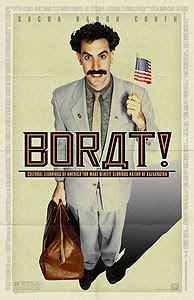Thursday, June 30, 2005
Beating The Polygraph
This is a mighty strange topic to be writing on but spare me the luxury (and attention) of this whim.I decided to just write about this after on ST about the retirement of the head of CPIB.And in particular,one incident which the man remembered.That was when one of his key officers in CPIB was caught cheating a businessman and the chief then ordered polygraph tests for the entire unit.And in the words of the article:All came out clean.
Oh reeeally?Is that "All came out clean" or "Nobody was caught"?These are two different things you know.
It is precisely because of this particular article that I went around looking up on the science of polygraph tests and how accurate the tests are?And try as I might,the results are not too reassuring.My feeling is that anybody with a basic knowledge of how the polygraph test works should be able to beat it.And if you consider that CPIB staff might probably know a bit more about such tests than others (I confess I don't know if they regularly administer polygraphs on suspects),they would know how to beat it more than any other people,wouldn't they?
The below is an extract of how the test works:
The secret behind the polygraph is that the "test" depends on trickery, not science. The person being "tested" is not supposed to know that while the polygraph operator declares that all questions must be answered truthfully, warning that the slightest hint of deception will be detected, he secretly assumes that denials in response to certain questions -- called "control" questions -- will be less than truthful. An example of a commonly used control question is, "Did you ever lie to get out of trouble?" The polygrapher steers the examinee into a denial by warning, for example, that anyone who would do so is the same kind of person who would commit the kind of behavior that is under investigation and then lie about it. But secretly, it is assumed that everyone has lied to get out of trouble.
The polygraph pens don't do a special dance when a person lies. The polygrapher scores the test by comparing physiological responses (breathing, blood pressure, heart, and perspiration rates) to these probable-lie control questions with reactions to relevant questions such as, "Did you ever commit an act of espionage against the United States?" (commonly asked in security screening). If the former reactions are greater, the examinee passes; if the latter are greater, he fails. If responses to both "control" and relevant questions are about the same, the result is deemed inconclusive.
The test also includes irrelevant questions such as, "Are the lights on in this room?" The polygrapher falsely explains that such questions provide a "baseline for truth," because the true answer is obvious. But in reality, they are not scored at all! They merely serve as buffers between pairs of relevant and "control" questions.
Now think about it.We all know that polygraph measures nothing but physiological responses and that if we can control our responses at the right questions,we can beat the system.The usual thing that we'd do is to control and restrain our responses during questions that we are lying to,in the hope that our responses will go under the radar and be undetected.I beg to differ.Wouldn't it be much easier to exaggerate responses so that even when we do have physiological responses while lying,the responses do not appear deviant enough to raise the alarm?
Because let's face it.The control questions are likely to be generalities that would not trigger too much of a physiological reaction even if we were to lie about it.But specifics?Hell,you might start sweating and thinking about precisely what to say.And once you start thinking,in a time-critical environment,you will also start panicking (no matter how slight).Your heart beats slighly faster,your eyes look at other things as you start pondering...bang,you are caught.
Well,what if you exaggerate your reactions to the control questions?
"Have you ever lied to get out of trouble?"
"NOOOoooooooooooo..." (Long drawn-out breath,eyes looking offended,clench fists and think about your worst nightmare coming true...)
You think that when someone ask,"Where were you during such and such a time?",your lie is gonna register a larger response than that?Unless you really don't know how to act,most criminals would know how to,wouldn't they?
What's my point?I am not trying to advocate people to start lying during polygraph tests.To each his own so that is not something I bother with.If you wanna lie,you will lie anyway and don't need me to teach you how to.I am just so bemused by authorities who place so much faith on a system that fundamentally flawed.
Just because your men passed a polygraph doesn't mean they're clean,Mr CPIB.That's a fallacy.
Batman spun on 2:47 PM.












